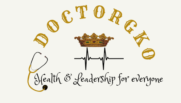Menopause – Overview, Signs, Symptoms and Management
Menopause is a word which barely used as a single word, instead we used to hear many words related to menopause as Menopausal syndrome, Peri-menopausal symptoms, signs of menopause, ageing symptoms, post menopausal symptoms and so on. Every woman undergoes this natural process. Are you a woman? Please aware about this Menopausal phase. Are you a Man? Please aware about this menopausal phase, because many social factors are attributing to this menopausal syndrome.
What is Menopause?
Menopause is neither an illness nor a state of being well; it is a natural physiological phenomenon of ageing transition for women from reproductive to non reproductive state. If a woman not menstruating for 12 months mean she has attained menopause.
During the time of Menopause, there will be a decreased biological and physiological activity which leads to Psychological disturbances.
Perimenopause begins at the age of 40s, Menopause usually at 50s, for some women, it may at 40s. Interestingly, some women can menstruate till 60s.
Menopausal Signs and Symptoms:
There are many signs and symptoms occur during Menopause, that’s why it is called as Menopausal Syndrome.
Symptoms begin with Hot flashes, Night sweats and mood swings.
Other group of symptoms is
- Irregular periods {Initial phase}
- Vaginal dryness
- Painful Intercourse
- Loss of Breast fullness
- Thinning of Hair in the skin
- Weight gain and slowed metabolism
- Joint pain
- Irregular heart beat with Anxiety
- Chills and night sweats
- Sleep problems
- Mood changes and irritability
- Brain fog– Slow information processing, Difficulty in multi-tasking, forgetfulness
In menopause, there will be a decreased Biological and Physiological functions leads to psychological disturbances. Once your menstrual period is stopped, the Estrogen hormone in your body will gradually decline, so you will no longer able to produce another hormone called Progesterone. Because of these endocrine function influences, all the above symptoms are produced.
Menopause is a time for Psychological stress; this psychological stress severity depends upon various factors like
- Past experience of mood disorders
- Low Self-esteem
- Lack of Self-awareness
- Life events
- Personality development & Coping skills
- Negative attitude towards Menopause and Ageing
- Life stressors like Lack of social support, Unemployment & Financial crisis, Surgical menopause and overall poor health.
Anxiety and Depression are strongly associated with Menopause.
Menopausal Management:
Menopause management starts with understanding the sufferings. Because many people seeking treatment for their signs and symptoms like Insomnia, weight gain, irregular periods, palpitation etc.. But the thing is treating each and every symptoms wont give a relief. Menopause management should be mainly focused on Life style modifications and self-care healthy habits.
Breathing Exercise & paced breathing:
It helps you to handle Hot flashes. Paced breathing means slow smooth diaphragmatic breathing. Normally, your average respiration rate is around 12 to 14 per minute. In paced breathing, it is around 5 to 7 minute. Paced breathing reduces the stress chemicals and thus by lowers blood pressure, regulates heart beat , aids relaxation and reduces the hot flashes symptom.
Exercises:
Regular physical exercises have a healthiest impact on your happy hormones which regulate your stress levels, immune system and hormones. Doing exercises regularly helps you to tackle your majority of symptoms.
Walking:
Walking is a wonderful habit one should adopt irrespective of age. Walking should be done alone. i.e walking without chatting, walking without listening music or podcast. If you do like these, walking improves your memory attention, cognitive function, improves your mood, improves your self-esteem, reduces your Anxiety and depression symptoms.
Emotional Regulation Strategies:
Using Emotional regulation strategies for handling your mood swings and emotional disturbances is essential. If it is not done so, it has a negative impact on interpersonal relationships and intra personal relationships.
Healthy food habits:
Fruits and vegetables rich diet helps you in menopause. Food rich in phytoestrogens like flax seeds, soyabeans, chickpeas, berries, plums acts as weak estrogen in your body which supports you during this menopausal phase. Protein rich food is highly recommended during this period.
Foods to avoid are high salty food, processed food, excessive sugar, caffeine, spicy foods and Alcohol.
Practicing Mindfulness plays a vital role in handling stress and reduces the brain fog symptoms
Yoga & Meditation:
Many researches and articles are published about the wonderfulness of yoga and meditation in overall health. Yoga & Meditation does wonders in your life.
By following the above guidelines on regular basis and with family support, the journey of menopause will be smooth and steady. If, there is persistent symptoms of Anxiety, irritability , sadness and mood swings more than 2 weeks, seeking professional Help is the wisest choice.
Vitamin deficiency and overall health aspects.
Jealousy and Envy differences with Examples, Strategies to cope up with
sadness is an emotion, not a mental illness
Winter health wellness and tips
Share this post: on Twitter on Facebook on Google+ on LinkedIn





